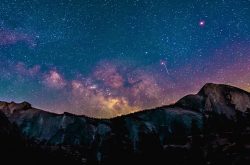 What are ocean worlds like? Is life possible inside a planet? What might a faraway technological civilization look like from here? Which planets warrant closer study, and why? And above all: Are we alone?
What are ocean worlds like? Is life possible inside a planet? What might a faraway technological civilization look like from here? Which planets warrant closer study, and why? And above all: Are we alone?
Astrobiology is the study of life in the universe and of the terrestrial environments and planetary and stellar processes that support it. To study astrobiology is to ask questions that cut across multiple disciplines and could take lifetimes to answer. The field gathers expertise from a host of other disciplines including biology, chemistry, geology, oceanography, atmospheric and Earth science, aeronautical engineering and of course astronomy itself.
Every two years, researchers gather from around the world to share and discuss their latest findings in a weeklong conference. Called AbSciCon2019 for short, this year’s conference will be held June 24-28 at the Hyatt Regency Hotel in Bellevue. It’s the biggest meeting of astrobiologists in the world and dozens of University of Washington researchers will attend and participate.
Here are several UW College of the Environment presentations and papers scheduled during the conference. Though the lead presenter is listed here only, most projects involve the work of several colleagues.
- A study of water vapor and ice particles emitting from the plume on Saturn’s moon Enceladus, leading to a better understanding of the moon’s subsurface ocean. With Earth and Space Sciences doctoral student Lucas Fifer and colleagues. (June 24)
- An exploration of how viruses and hosts co-evolved, enabling microbial life in extremely cold brines. With Oceanography professor Jody Deming. (June 26)
- Modeling Earth’s atmosphere 2.7 billion years ago and the effect of iron-rich micrometeorites that rained down, melted and interacted with the surrounding gases, leading to a better understanding of carbon dioxide levels at that time. With Earth and Space Sciences graduate student Owen Lehmer and colleagues. (June 26)
Many other UW faculty members will participate, either with reports on their own research or in support of colleagues or graduate students. These include ESS professors David Catling, Roger Buick, J. Michael Brown, Erika Harnett and Jonathan Toner, among others.
Read more at UW News »
